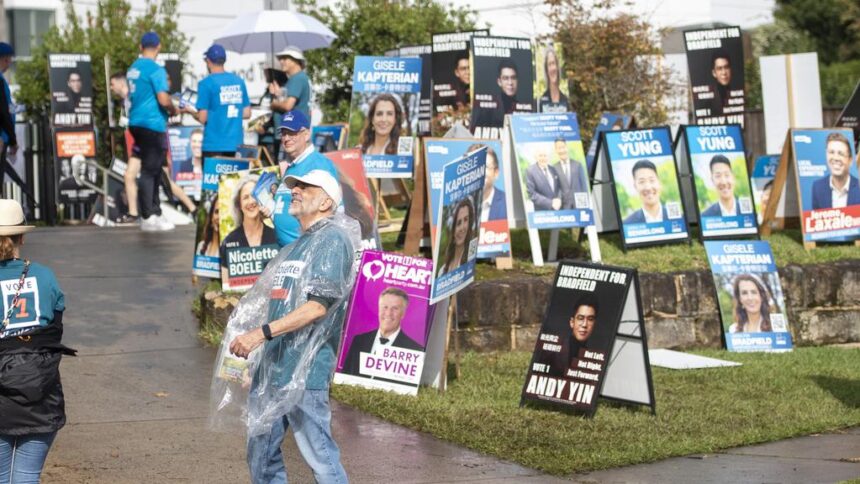Randwick Council considers ban on election corflutes
A Sydney local council is taking a bold step toward sustainability and cleaner streets by reconsidering the traditional use of election corflutes on public infrastructure.
Council vote signals environmental shift
In a significant move reflecting growing environmental consciousness, Randwick Council has voted 9–5 to explore a total ban on election corflutes across all council-owned property. The initiative, spearheaded by Greens councillor Masoomeh Asgari, is part of a broader push to reduce election-related waste materials, including campaign flyers and plastic ties.
Motion seeks report on reducing campaign waste
The motion calls for council staff to develop a report that evaluates ways to minimize the volume of election waste and eliminate the use of corflutes on public infrastructure, such as parking poles. “In the past three years we have had two federal elections, a state election and a local government election and in each case large amounts of waste have been produced in the form of corflutes and paper (how-to-votes and flyers) in order to inform voters about candidates, their policies and how they should vote,” the motion states.
Council poles now the primary target for signage
A major concern is that while utilities like Ausgrid have banned these plastic signs from telegraph poles, council-owned poles remain the default for campaign displays, often leading to clutter, litter, and resident complaints. “Corflute waste is a particular issue in Randwick. Ausgrid have banned them on telegraph poles, so the main display structures are council’s parking poles and the like,” it continues.
Residents voice frustration over visual clutter
Residents have grown increasingly frustrated with the “visual pollution, the inconvenience of placement and the litter, including from plastic ties.” The debate has intensified as communities look for environmentally conscious alternatives to traditional political advertising methods.
Balancing democracy and environmental impact
The motion emphasizes the democratic importance of informed voting but also highlights the pressing need to balance that right with environmental responsibility. “Informing voters is essential in a democracy but it’s time to investigate how this can be done with less waste,” the motion reads.
Controversy over corflutes extends nationally
This local discussion mirrors a broader national conversation, which came to a head during the May 3 federal election. During that campaign period, corflute placement rules became a flashpoint of controversy, particularly in marginal seats. One high-profile incident that sparked debate involved federal independent MP Monique Ryan’s husband, Peter Jordan, who was filmed removing a corflute sign of Liberal candidate Amelia Hamer.
Viral incident fuels ethical and legal concerns
The footage quickly went viral, showing Mr Jordan walking away with Hamer’s sign as a Liberal supporter followed him. The incident reignited questions around legality, ethics, and the growing public discomfort with the traditional campaign medium.
Randwick’s decision could set broader precedent
If Randwick Council moves forward with the proposed ban, it could set a precedent for other Sydney councils and potentially influence policy changes statewide. The report commissioned by the motion will likely explore eco-friendly alternatives that maintain voter engagement without contributing to waste or community disruption.
Local councils urged to rethink political campaigning
With sustainability and clean streets becoming higher priorities for voters, councils like Randwick are being called on to rethink long-standing practices. This vote, although just a first step, could pave the way for a more modern and environmentally responsible approach to political campaigning in Australia.






